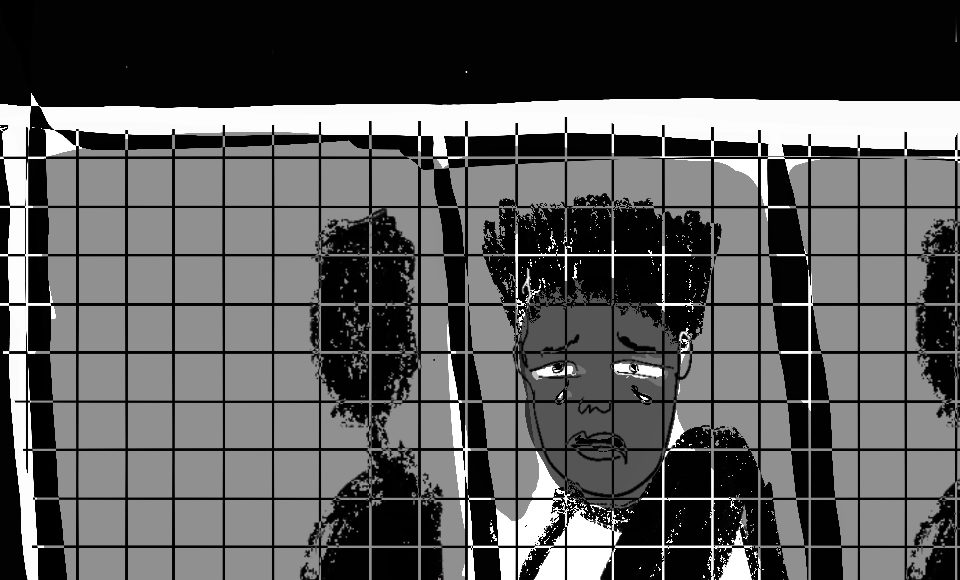Illustration by Ngadi Smart
To honor the #EndSARS movement, Sahelien.com has solicited stories of encounters with Nigerian police, and commissioned artist Ngadi Smart to illustrate them. These stories show the everyday horror Nigerians face at the hands of the police, and the courage citizens show in resisting their brutality. We will publish a new account every Sunday.
Oyekanmi’s story
Of the many bad experiences that I’ve had with Nigeria Police, I can’t forget the one that happened in 2004.
I was young and was staying with my uncle in Ilorin while waiting for the start of the University of Ilorin school year. I was cooking dinner and ran out of kerosene, so I went to get another one without informing my uncle, who was watching TV in the living room.
It was around 9:00 pm and I was on a street close to the house with the empty kerosene keg in my hand, looking for where to buy a new one. A police pick-up truck pulled up beside me and suddenly police officers descended from the vehicle, slapped me, grabbed me and threw me in the bed of the pick-up. I was crying and shouting, what have I done? Another resounding slap landed on my face. I met few other guys inside the pick-up, crying and lamenting.
We got to the station and I met about 40 young guys sitting on the floor. We joined them and the police attended to us one after the other. They were taking our details and collecting our belongings (phones, cash and others). I had N20,000 with me that night, money meant to process my admission.
The officer in charge saw the money and recorded the amount into his books. They started dragging us into a cell and I noticed that a few of them were saying they wanted to bail themselves out. I was young and naïve and didn’t know the meaning of bail, at least not until the police officer that in charge of records called me and advised me that since I have some cash with me, I should bail myself out.
I called the supposed leader and informed him that I want to bail myself. He took me to an office where I met a senior police officer. He asked me, how much did they find on me? I said N20,000 with some change to buy kerosene. I was still crying, telling him that I did nothing wrong. I was asked to drop the N20,000 as bail. I refused and pleaded that the money is for my university admission process. At the end, I was asked to drop N10,000.
I was released around 2:00 am with the balance N10,000. I was so scared to leave the police station because they were still raiding people. I innocently asked the policewoman at the counter, “If I’m arrested again on my way home at this time of the night, I hope I will not have to pay again?” She said you still have balance N10, 000 with you. That’s enough to bail yourself again.
I regretted to be a Nigerian that night. I did nothing wrong. I was so young and innocent. My uncle was so worried and had been looking for my whereabouts.
* * *
On October 20, 2020, the Nigerian military opened fire on peaceful #EndSARS protesters at the Lekki tollgate in Lagos, Nigeria, killing at least 15 people, according to eyewitness DJ Switch. The massacre put a brutal halt to street protests that had galvanized the nation for two weeks following the brutal killing of a man in Ughelli, Delta State, on October 7th by officers from the Special Anti-Robbery Squad (SARS).
The protests demanding an end to police brutality and a disbanding of SARS had grown organically and spread across the nation and in diaspora communities around the world, creating a powerful rallying point for dynamic, generational change. In the words of Saratu Abiola, “#EndSARS broke the cycle of mistrust and showed that there might still be hope for salvaging Nigerians’ faith in each other.”
To this date, no police officer, soldier, or public official has even lost their job, much less been held accountable for their part in the massacre.

